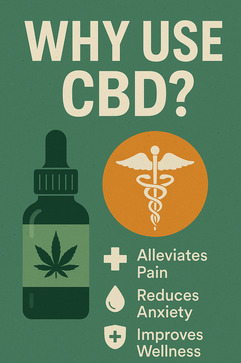As cannabis products become more mainstream, consumers are often overwhelmed by terms like THC, THCA, marijuana, CBD, and delta 8. These compounds differ in their effects, legality, and health benefits. This guide breaks down the differences so you can make informed choices—and avoid common misconceptions.
-
The main psychoactive compound in cannabis.
-
Responsible for the “high” associated with marijuana.
-
Binds to CB1 receptors in the brain, causing euphoria, altered perception, and relaxation53.
-
Used medically for pain relief, appetite stimulation, and nausea control5.
-
The non-psychoactive precursor to THC, found in raw, unheated cannabis.
-
Does not cause a high unless it’s heated (smoked, vaped, or cooked), which converts it to THC via decarboxylation473.
-
Studied for potential anti-inflammatory, anti-nausea, and neuroprotective effects51.
-
Common in “THCA flower” and raw cannabis products.
| Feature | THC | THCA |
|---|---|---|
| Psychoactive? | Yes | No |
| Found in | Heated/processed cannabis | Raw, unheated cannabis |
| Medical uses | Pain, appetite, nausea | Inflammation, neuroprotection |
| Legal status | Heavily regulated | Less regulated, but can convert |
TL;DR
-
Refers to cannabis plants high in THC.
-
Used recreationally and medicinally for its psychoactive effects.
-
Heavily regulated at the federal level in the U.S.; legality varies by state.
-
A non-psychoactive cannabinoid found in both hemp and marijuana.
-
Does not produce a high.
-
Popular for potential benefits like anxiety reduction, anti-inflammation, and seizure control.
-
Legal if derived from hemp containing less than 0.3% THC (per the 2018 Farm Bill).
| Feature | Marijuana (High THC) | CBD Products |
|---|---|---|
| Psychoactive? | Yes | No |
| Main compound | THC | CBD |
| Legal status | State-dependent, federally illegal | Federally legal if hemp-derived |
| Uses | Recreational, medical | Wellness, medical |
TL;DR
-
A minor cannabinoid, chemically similar to delta-9 THC but less potent.
-
Produces a milder, clearer high with fewer anxiety-related side effects86.
-
Usually synthesized from CBD extracted from hemp.
-
Legal status is complex—often sold under the “hemp” loophole, but banned in some states.
-
THCA is non-psychoactive until heated; delta 8 is mildly psychoactive even in its standard form.
-
Most users find delta 8’s effects gentler than those of delta-9 THC (from marijuana or converted THCA)68.
-
THCA is the natural precursor to THC, while delta 8 is typically created from CBD via chemical conversion6.
| Feature | Delta 8 THC | THCA |
|---|---|---|
| Psychoactive? | Mildly | No (unless heated) |
| Source | Hemp-derived (from CBD) | Raw cannabis |
| Effects | Milder high, less anxiety | None (raw); full THC effects when heated |
| Legal status | Often legal under hemp laws | Legal until decarboxylated |
-
unless heated. Eating raw cannabis or THCA products will not get you high245.
-
—it’s created when THCA is heated (smoked, vaped, cooked)137.
-
and are legal if derived from hemp.
-
to traditional THC, often marketed as “legal weed.”
-
refers to cannabis with high THC; hemp refers to cannabis with low THC and is the source of most legal CBD and delta 8 products.
Understanding the differences between THC, THCA, marijuana, CBD, and delta 8 empowers you to choose the right products for your needs—whether for wellness, recreation, or medical purposes. Always check your local laws and buy from reputable sources to ensure safety and compliance.
If you’re new to cannabis or hemp products, start low and go slow, and consult a healthcare professional if you have medical concerns.
Citations:
- https://hopeharborwellness.com/thca-vs-thc/
- https://healthyliferecovery.com/thca-vs-thc/
- https://unitedrecoveryproject.com/rehab-blog/thca-vs-thc/
- https://www.webmd.com/mental-health/addiction/what-is-thca
- https://alignsonoma.com/thca-vs-thc/
- https://secretnature.com/blogs/cbd/thca-vs-delta-8-differences-similarities
- https://floredispensary.com/thc-vs-thca/
- https://www.getsoul.com/blogs/cbd-education/thca-vs-delt-8


